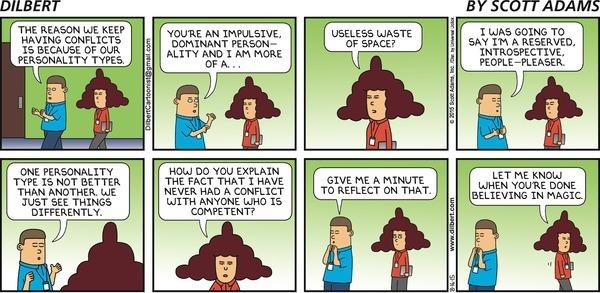 The Big Five traits are the bread-and-butter of psychology, like complexes, the unconscious, and cigars are to Freud. Psychological research is saturated with studies on the impact of these five traits on professional success, personal development, and relationships – and for good reason.
The Big Five traits are the bread-and-butter of psychology, like complexes, the unconscious, and cigars are to Freud. Psychological research is saturated with studies on the impact of these five traits on professional success, personal development, and relationships – and for good reason.
A study we conducted at PsychTests indicates that cultivating the Big Five traits can, among other things, act as a buffer against stress, boost social popularity, and increase goal achievement.
Collecting data from 3,781 people who took our Advanced Multidimensional Personality Matrix, our study reveals that cultivating Emotional Stability, Open-mindedness, Agreeableness, Conscientiousness and, to some degree, Extroversion, can yield several benefits. According to our research, of those who score high on the Big Five:
- 83% thrive under stress and in high-pressure situations, compared to 5% of those who score low on the five traits.
- 98% consider themselves easy to get along with, compared to 30% of those who score low.
- 78% are considered popular in their social group, compared to 5% of those who score low.
- 93% have a wide variety of friends from different cultures and ethnic groups, compared to 60% of those who score low.
- 88% adapt well to change in general, whether at work or in their personal life, compared to 11% of those who score low.
- 65% are satisfied with their job, compared to 16% of those who score low.
- 75% have been rated as a top performer at work, compared to 22% of those who score low.
- Of the goals they’ve set, 81% have achieved most, if not all of them, compared to 5% of those who score low; in fact, 37% of the low group actually don’t set any goals for themselves.
On the flipside:
- 73% of those who score low on the Big Five traits experience negative emotions like sadness, guilt, shame or anxiety on a weekly basis, compared to 3% of those who score high.
- 33% of those who score low find themselves in conflict situations on a weekly basis, compared to 6% of those who score high.
- 36% of those who score low have sought out the help of a therapist in the last year, with another 14% thinking about attending a therapy session, compared to 6% and 5% respectively for those who score high
- 34% of those who score low lack tact and have a tendency to offend others, either through their words or actions, compared to 2% of those who score high.
Our research also reveals interesting gender differences. Men outscored women on Emotional Stability (score of 58 vs. 53, on a scale from 0 to 100) and Openness (score of 70 vs. 68), while women outscored men on Agreeableness (score of 69 vs. 67). In terms of age differences, older age groups consistently outscored younger age groups on every trait aside from Extroversion, which revealed no statistically significant differences.
Although we recommend that people strive to nurture all of the Big Five traits, the one gray area would be Extroversion. On the one hand, extroverts do perform slightly better than introverts in several areas – and better than ambiverts, much to our surprise – based on preliminary results from our latest study. However, it’s important for people to understand that there is nothing wrong with being introverted or extroverted; they are orientations, not personality flaws. Extroverts enjoy the benefits of a strong social support system; they have people to turn to in times of need, and from a professional point of view, knowing a lot of people is also important for networking. As for introverts, their ability to turn their attention inward and immerse themselves in the world of thoughts and emotions boosts their creativity and allows them to process information in order to make well-informed decisions.
The bottom line: These five attributes have been linked to academic and professional success, the ability to cope with stress, and even happier marriages. So working on developing these traits is really worth the effort.

If you’re interested in using AMPM - Ab - R2 (Advanced Multidimensional Personality Matrix Abridged - 2nd Revision) or other assessments for HR purposes, request a free trial for ARCH Profile here.
Want to learn more about using psychological tests for hiring, leadership development, career development or talent retention? Download our free eBook loaded with down-to-earth information about psychological testing for HR purposes.


